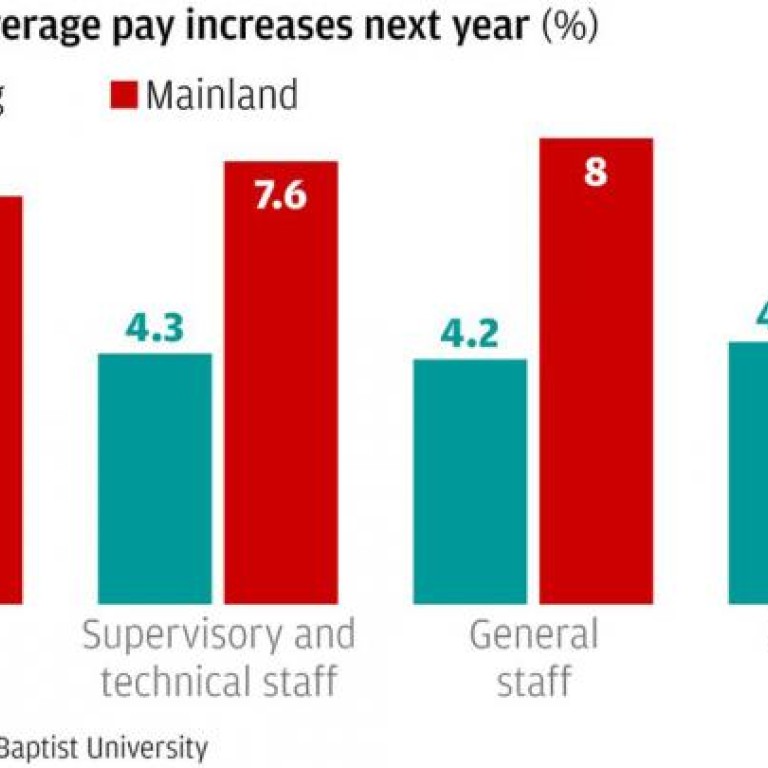
First graduates of new diploma paid less than A-level students, says survey
A-level students are earning more than those educated under the replacement system as they start work, survey shows
A new wage survey has forecast how much extra money Hongkongers can expect in their pay packets next year. It has also revealed how the first graduates of the new Diploma of Secondary School Education are being shortchanged compared with A-level students as they enter the workforce.
The diploma was introduced to replace A-levels and the Hong Kong Certificate of Education Exam, but its first graduates achieved an average monthly salary of only HK$8,244, while those students who left school with A-levels took home HK$8,590.
School leavers who entered the sales sector felt the gap in qualifications most - A-level graduates earned HK$8,929 a month, while DSE graduates earned only HK$8,333.
That is according to a survey conducted by Baptist University's Centre for Human Resources Strategy and Development, together with the Hong Kong People Management Association.
Between July and September, they questioned 91 local companies with 77,661 staff as well as 77 mainland companies from various provinces, and also Shanghai and Shenzhen, employing a total of 128,375 staff.
The responses showed Hong Kong's managers can expect a pay rise of 4.1 per cent next year, while blue-collar workers are in line for a 4.5 per cent rise.
Employees can expect a rise of up to 8 per cent on the mainland where wages have a much lower starting point. The average monthly salary for a fresh university graduate is 2,670 yuan (HK$3,284), while in Hong Kong it is HK$11,823.
The survey classifies employees into managerial staff, supervisory and technical staff, general staff and manual labour. In Hong Kong, they are expected to get a pay rise of 4.1, 4.3, 4.2, and 4.5 per cent respectively. Inflation in Hong Kong was running at 3.8 per cent in September.
The survey suggests mainland general staff are expected to get an 8 per cent raise and managerial staff a 7 per cent raise. It also found that local employees got a 4.1 to 4.2 per cent pay rise this year, while mainland employees received 6.2 to 10.4 per cent.
The association's president, Pauline Chung Hei-ching, said the survey also revealed bosses were concerned about paternity leave and moves to restrict the standard working week to about 44 hours before overtime rates kick in.
"Bosses in Hong Kong are still worried about the possible introduction of the standard working hours law and paternity leave for men," she said.
"But the bosses are aware that they need to offer a suitable level of pay rise in order to keep their staff from quitting."
While a motion urging the government to introduce a bill for standard working hours was voted down this month due to lack of support from functional constituency lawmakers, the proposal of paternity leave for men is expected to be passed by the Labour Advisory Board next month.
Eight of the 12 members on the board support the proposal, with six employees' representatives pushing for a five-day leave. If passed, it will be submitted to the Legislative Council.

